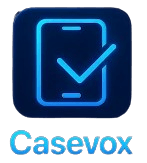Revenue Group Debt Collection Harassment❓
Is Revenue Group (RG) calling you? Stop Revenue Group phone harassment. Do they threaten to take legal action or garnish your wages? Are they calling you at all hours or several times a day? Are they telling your family and neighbors that you owe a debt? If so what they are doing is illegal and needs to stop. You have the legal right under federal laws to stop Revenue Group Debt Collector harassment. If a collection agency, such as Revenue Group Collections , violated the FDCPA, you may be eligible to receive up to $1000.00 in statutory damages, along with covering your attorney fees.
Is Revenue Group Legit?
According to the Better Business Bureau website, Revenue Group has been in business for 24 years. There have been 13 complaints filed against RG with the BBB.
What is Revenue Group Debt Collector?
The Revenue Group is third party debt collector located in Cleveland, Ohio. They often work with credit card companies to manage debt collection. They have been a party to over 50 federal cases based on their issuance of credit and collection of debts incurred on their credit cards. A recent Federal Court case alleges that The Revenue Group violated the FDCPA by using illegal and harassing communication tactics, violating state and federal laws, to attempt to coerce a payment from the harassed consumer.
🏛️ Revenue Group Cleveland Ohio Address: 3711 Chester Ave Ste 200 Cleveland, OH 44114-4623
📱 Phone: (216) 763-2100
Revenue Group Phone Numbers
- ☎️ (800) 305-5702
- ☎️ (216) 763-2100
- ☎️ (419) 718-9105
- ☎️ (216) 763-2117
If the answer is yes, then you are receiving calls from a known RG number. You may be a victim of Revenue Group phone harassment. The list above is not all the numbers that RG uses. The calls can be from a different numbers and it still be Revenue Group Debt Collector calling you. Contact our office right away so we can start the process to stop RG from calling you illegally. Above all, no one should live with harassment!
Revenue Group Collection Tactics
Revenue Group Collections employs various methods to collect debts, including phone calls, letters, and emails. Unfortunately, many consumers have reported that these tactics can be harassing and abusive. Instances of multiple daily phone calls, threats of lawsuits, and contact at work or home are not uncommon. Such actions can violate the Fair Debt Collection Practices Act (FDCPA), a federal law designed to regulate the behavior of debt collectors and protect consumers from unfair debt collection practices. If Revenue Group violated these regulations, they could face legal consequences.

Revenue Group Collection Tactics and FDCPA
If Revenue Group engages in any of the following tactics, you may have a case:
- ➡️ Using profanity or abusive language
- ➡️ Calling you before 8:00 a.m. or after 9:00 p.m.
- ➡️ Calling you multiple times per week
- ➡️ Talking to others about your debt
- ➡️ Calling your workplace
- ➡️ Threatening to sue you, harm you, or destroy your credit
- ➡️ Telling you or anyone else that you’ve committed a crime
- ➡️ Calling repeatedly for the wrong person
- ➡️ Failing to notify you of your right to dispute the debt
- ➡️ Trying to collect more than legally allowed
These tactics are unfortunately common among most collection agencies.
Revenue Group Debt Collector Complaint
The following is a sample list of complaint details filed against Revenue Group in the past year and can be found on Pacer.gov.
- 📋 2:11-cv-08298-JHN-RZ Morvari v.
- 📋 1:09-cv-01059-WMS-LGF Stone v.
- 📋 1:08-cv-00945-JG Devericks v.
- 📋 1:14-cv-01508-DAP Reo v.
- 📋 1:14-cv-01865-LW Hinton v.
Understanding the complaint details is crucial for effectively responding to these cases.
Can Revenue Group Sue Me?
While it is unlikely, Revenue Group can sue you to collect a debt. If they choose to pursue legal action, they must file a lawsuit in court and serve you with a summons. Receiving a summons requires prompt action; failing to respond can result in a default judgment, leading to wage garnishment, bank levies, and other collection activities. Seeking the advice of an attorney is crucial if you find yourself in this situation.
Stopping Revenue Group Harassment
If you are experiencing harassment from Revenue Group, there are steps you can take to stop it. Sending a cease and desist letter to Revenue Group Debt Collector instructs them to cease contact. Additionally, you can file a complaint with the Federal Trade Commission (FTC) or your state’s Attorney General’s office. Consulting with an attorney who specializes in debt collection law can also provide you with the necessary guidance to protect your rights.
Credit Reporting and the Fair Credit Reporting Act
Revenue Group, like all debt collectors, must comply with the Fair Credit Reporting Act (FCRA). This federal law regulates the behavior of credit reporting agencies and debt collectors, requiring them to report accurate information to credit reporting agencies and notify consumers of any negative information reported. If you believe Revenue Group has reported inaccurate information about you to a credit reporting agency, you have the right to dispute the information and request corrections.

What Are My Rights When Dealing With a Debt Collector?
When dealing with a debt collector like Revenue Group, it’s essential to know your rights under the Fair Debt Collection Practices Act (FDCPA). This federal law protects consumers from abusive, unfair, and deceptive debt collection practices. Here are some of your rights:
- ▶️ The right to be treated with respect and dignity: Debt collectors must communicate with you in a respectful and professional manner. They cannot use abusive or profane language.
- ▶️ The right to know the debt: Debt collectors must provide you with clear and accurate information about the debt, including the amount, the creditor, and the date of the debt. This ensures transparency and allows you to verify the legitimacy of the debt.
- ▶️ The right to dispute the debt: If you believe the debt is incorrect or invalid, you have the right to dispute it with the debt collector. This can halt collection activities until the debt is verified.
- ▶️ The right to request validation: You can request that the debt collector provide you with written validation of the debt, including the amount, the creditor, and the date of the debt. This is crucial for ensuring that the debt is legitimate and accurately reported.
- ▶️ The right to stop harassment: Debt collectors are prohibited from harassing or threatening you, including making excessive phone calls or using abusive language. They must adhere to specific time frames for contacting you and cannot call you at inconvenient times.
- ▶️ The right to sue: If a debt collector violates the FDCPA, you may be entitled to sue for damages and attorney’s fees. This provides a legal recourse to hold debt collectors accountable for their actions.
Understanding these rights can empower you to handle interactions with debt collectors more effectively and protect yourself from unfair practices.
Removing Negative Marks from Credit Reports
If Revenue Group Debt Collector has reported a debt to your credit report, you may be able to remove it by disputing the debt or negotiating a settlement. Here are some steps you can take:
- ➤ Check your credit report: Obtain a copy of your credit report from the three major credit reporting agencies (Experian, TransUnion, and Equifax) and review it for errors or inaccuracies. This is the first step in identifying any incorrect information that may be affecting your credit score.
- ➤ Dispute the debt: If you believe the debt is incorrect or invalid, you can dispute it with the credit reporting agency. You can do this online, by phone, or by mail. The credit reporting agency is required to investigate your dispute and correct any inaccuracies.
- ➤ Negotiate a settlement: If you owe the debt, you may be able to negotiate a settlement with Revenue Group. This can involve paying a lump sum or setting up a payment plan. Once the debt is settled, you can request that Revenue Group update your credit report to reflect the payment.
- ➤ Request a goodwill deletion: If you’ve paid the debt or settled with Revenue Group Collections, you can request that they delete the negative mark from your credit report as a goodwill gesture. This is more likely to be successful if you have a good payment history and the negative mark was a one-time occurrence.
- ➤ Consider a credit repair service: If you’re not comfortable disputing the debt or negotiating a settlement on your own, you may want to consider hiring a credit repair service to help you. These services can assist with disputing inaccuracies and negotiating with creditors on your behalf.
Taking these steps can help improve your credit report and ensure that it accurately reflects your financial situation.

Negotiating with Revenue Group Collections
If you owe a debt to Revenue Group, you may be able to negotiate a settlement. Here are some pros and cons to consider:
Pros:
- ➢ Reduced debt: Negotiating a settlement can result in a reduced debt amount, which can be beneficial if you’re struggling to pay the full amount. This can provide financial relief and help you manage your finances more effectively.
- ➢ Avoiding litigation: By negotiating a settlement, you can avoid the risk of litigation and the potential for a judgment against you. This can prevent further legal complications and additional costs.
- ➢ Improved credit score: Paying off a debt or settling with Revenue Group can improve your credit score over time. This can enhance your financial standing and make it easier to obtain credit in the future.
Cons:
- ➢ Admitting liability: By negotiating a settlement, you may be admitting liability for the debt, which can affect your credit score. This can have long-term implications for your financial health.
- ➢ Limited flexibility: Revenue Group may not be willing to negotiate a settlement, or they may only offer limited flexibility in terms of payment plans or reduced debt amounts. This can make it challenging to reach an agreement that works for you.
- ➢ Tax implications: Depending on the amount of the debt and the terms of the settlement, you may be required to pay taxes on the forgiven debt. This can add an additional financial burden.
Before negotiating a settlement with Revenue Group, it’s essential to:
- ➢ Review your financial situation: Make sure you understand your income, expenses, and debt obligations before negotiating a settlement. This will help you determine what you can realistically afford to pay.
- ➢ Know your rights: Understand your rights under the FDCPA and the Fair Credit Reporting Act (FCRA) before negotiating a settlement. This will ensure that you are treated fairly and that your rights are protected.
- ➢ Seek professional advice: Consider hiring a debt settlement attorney or credit counselor to help you negotiate a settlement with Revenue Group Debt Collector. They can provide expert guidance and help you achieve the best possible outcome.
By carefully considering these factors and seeking professional advice, you can make an informed decision about whether to negotiate a settlement with Revenue Group.
Consumer Rights Law Firm PLLC
Consumer Rights Law Firm PLLC is a law firm that specializes in helping clients who are facing harassment from debt collectors in any form, including telephone communication. Rather than suffer alone, contact our office to begin the process to stop the Revenue Group harassment. Our office has been assisting consumers since 2010. We have an A+ rating with the Better Business Bureau.
If you are interested in learning more about how to safeguard yourself and prevent harassment from Revenue Group call us at for immediate assistance or visit our website.
Success Stories
- 🏆 “Revenue Group’s constant calls were unbearable. Consumer Rights Law Firm PLLC stepped in, sent a letter, and the harassment stopped immediately. Incredible relief!”
- 🏆 “Revenue Group was reporting a wrong debt. Consumer Rights Law Firm PLLC got it removed from my credit report quickly. Thank you!”
- 🏆 “Consumer Rights Law Firm PLLC negotiated with Revenue Group and stopped their abusive tactics. Got a fair settlement and peace of mind.”
FAQs
What is The Revenue Group and why are they calling me?
The Revenue Group is a third-party debt-collection and revenue cycle management firm based in Cleveland, Ohio. If they’re contacting you, it’s because a creditor believes you owe a past-due account and assigned it to them for collection.
Is The Revenue Group committing illegal phone harassment?
Debt collectors like The Revenue Group must follow the FDCPA. Repeated calls, threats, obscene language, or contacting you outside 8 a.m.–9 p.m. can be illegal harassment.
How many calls in a week is too many from a debt collector?
Under CFPB rules, more than seven calls in seven days about the same account may be considered harassment under federal law.
Can I request The Revenue Group to stop calling me?
Yes. Send a written cease-and-desist letter. After they receive it, they must stop all communications except to confirm no further contact or notify you they’re taking legal action.
Can I sue The Revenue Group for FDCPA violations?
Yes. If they violate the FDCPA—for example, by harassing calls—you can file a lawsuit within one year and may recover statutory damages up to $1,000 plus actual damages.
What should I do if The Revenue Group calls from robocall number?
If they’re calling without your prior consent or from misleading numbers, they might violate the TCPA. Document the calls and consider filing complaints with the FTC, CFPB, or taking legal action.
Can The Revenue Group affect my credit score?
Yes. They can report the debt to credit bureaus, which may lower your credit score. You have the right to dispute any incorrect or outdated information on your credit report.
How do I dispute a debt with the Revenue Group Debt Collector?
Within 30 days of first contact, send a written dispute request asking for verification of the debt. They must cease collection until they provide proof of the debt’s validity.
What evidence do I need before The Revenue Group calls stop?
Keep records of call times, frequency and content. Also request debt validation and keep copies. These documents support complaints to regulators or lawsuits.
Who can I report The Revenue Group to if they harass me?
You can file complaints with the Federal Trade Commission (FTC), (CFPB), and your State Attorney General. Consider consulting a consumer rights attorney.








